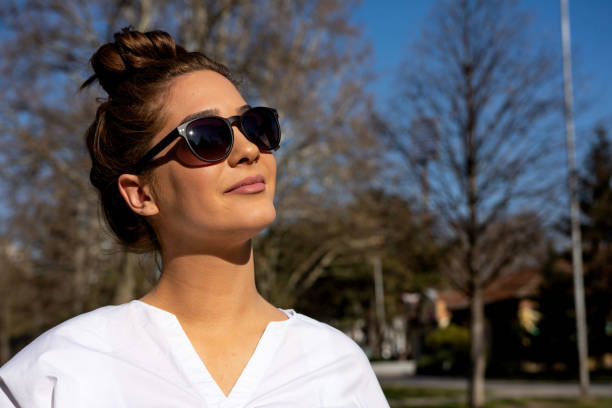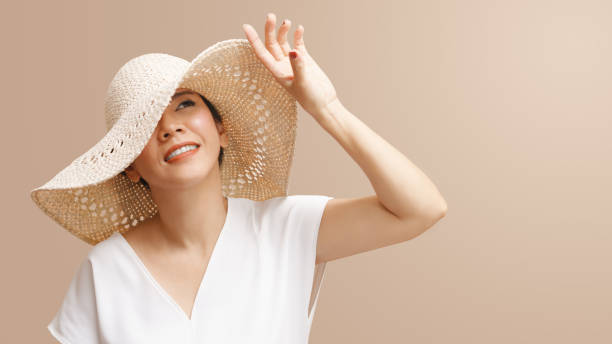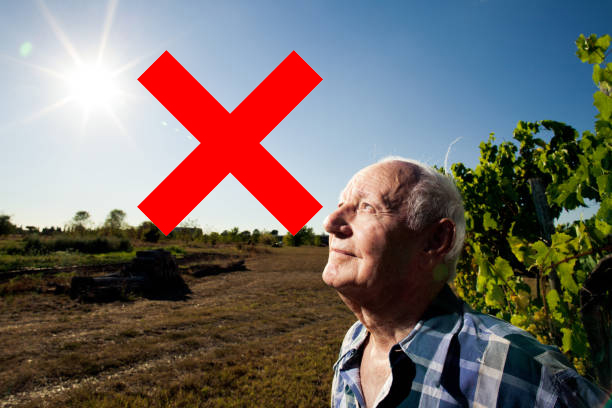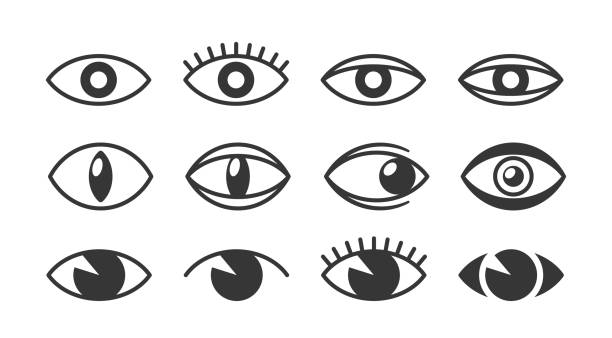Introduction
We all know how important it is to protect our skin from the sun, but what about our eyes? Just like our skin, our eyes are vulnerable to the harmful effects of ultraviolet (UV) rays, which can cause serious damage over time. Prolonged exposure to UV radiation can increase the risk of cataracts, macular degeneration, and even photokeratitis—a painful condition similar to a sunburn but affecting the eyes. Whether you’re spending a day at the beach, driving, or simply running errands outdoors, taking simple precautions can go a long way in preserving your eye health. In this guide, we’ll explore the best ways to shield your eyes from UV damage and maintain clear, healthy vision for years to come.
Understanding UV Rays
The sun gives off different types of rays, including UVA and UVB rays. Both can harm your eyes:
- UVA rays go deep into the eye and can lead to long-term damage.
- UVB rays are more intense and can cause immediate problems like sunburn on the eyes, also called photokeratitis.
Without protection, prolonged exposure to UV rays increases the risk of eye diseases. Many people underestimate the power of these rays, thinking that cloud cover can fully shield them. However, up to 80% of UV rays can penetrate clouds, meaning that eye protection is important even on overcast days.
Signs of UV Damage in Eyes
If your eyes are exposed to too much UV light, you may notice:
- Redness or irritation
- Feeling like there is sand in your eyes
- Excessive tearing
- Blurred vision
- Increased sensitivity to light
Long-term exposure can lead to serious conditions, including cataracts, which cause cloudy vision, and macular degeneration, which affects central vision. In extreme cases, UV exposure can even lead to eye cancers, making protection even more critical.
Best Ways to Protect Your Eyes
1. Wear UV-Blocking Sunglasses

Not all sunglasses are created equal. Look for sunglasses that:
- Block 100% of UVA and UVB rays
- Have large frames or wraparound styles for extra coverage
- Are labeled UV400, which means they block even the smallest UV rays
Darker lenses do not always mean better protection, so always check the label before buying. Also, remember that even if your sunglasses have UV protection, they should be replaced if they become scratched or damaged, as this can reduce their effectiveness.
2. Wear a Hat with a Wide Brim

Wearing a hat can provide extra shade and significantly reduce the amount of UV rays that reach your eyes, offering an added layer of defense against sun damage. A wide-brimmed hat, in particular, can block nearly half of the sun’s harmful rays, shielding not only your eyes but also your face and the delicate skin around them. This is especially beneficial on bright, sunny days or when spending extended periods outdoors. When combined with high-quality UV-blocking sunglasses, a hat enhances your overall eye protection, helping to prevent long-term damage such as cataracts and macular degeneration.
3. Avoid Peak Sun Hours
UV rays are strongest between 10 AM and 4 PM. Try to stay in the shade or indoors during these hours if possible. If you must be outside, make sure to wear proper eye protection. This is especially important for those who work outdoors, athletes, and people who enjoy hiking or other outdoor activities.
4. Use UV-Protective Contact Lenses
If you wear contact lenses, consider ones that have built-in UV protection. These lenses help block some UV rays but should still be used with sunglasses for full coverage. Not all contact lenses offer UV protection, so ask your eye doctor about the best options for you.
5. Never Stare at the Sun

Staring directly at the sun, even for a short period, can cause serious and irreversible damage to the retina, a condition known as solar retinopathy. The intense ultraviolet (UV) and visible light from the sun can burn the light-sensitive cells in the retina, leading to blurred vision, blind spots, or even permanent vision loss.
Unfortunately, this damage is often painless, so people may not realize they have harmed their eyes until it is too late. To safely observe an eclipse or any other bright solar event, it is essential to use proper eye protection, such as eclipse glasses with special solar filters that meet international safety standards. Regular sunglasses, no matter how dark, do not provide sufficient protection and should never be used for direct sun viewing.
Protecting Children’s Eyes
Children’s eyes are more sensitive to UV rays because their lenses are clearer, allowing more light to enter. To keep their eyes safe:
- Have them wear UV-blocking sunglasses
- Use hats for added protection
- Limit their sun exposure during peak hours
Since kids spend more time outdoors than most adults, their eyes need extra care. Teaching children about the importance of eye protection at an early age helps establish good habits that will last a lifetime.
UV Protection in Winter
Many people think UV protection is only necessary in summer, but snow can reflect up to 80% of UV rays. This can lead to a condition called snow blindness, a painful sunburn on the eye’s surface. Always wear sunglasses or goggles with UV protection when outside in snowy conditions. Winter sports enthusiasts, such as skiers and snowboarders, are particularly at risk and should take extra precautions.
Choosing the Right Sunglasses
When buying sunglasses, check for:
- UV Protection: Ensure they block 100% of UVA and UVB rays.
- Polarized Lenses: These reduce glare but do not always block UV rays, so check the label.
- Lens Color: Gray, brown, or green lenses provide better color contrast.
- Durability: Scratch-resistant and impact-resistant lenses last longer and offer better eye protection.
- Fit: Sunglasses should fit snugly on your face without slipping, ensuring full coverage from UV rays.
Diet and Eye Health
Eating foods rich in antioxidants can help protect your eyes from UV damage. Include:
- Carrots and sweet potatoes (rich in beta-carotene)
- Leafy greens like spinach and kale (contain lutein and zeaxanthin)
- Fish like salmon and tuna (high in omega-3 fatty acids)
- Citrus fruits and berries (rich in vitamin C, which supports eye health)
These nutrients help keep your eyes healthy and protect against UV-related damage. A balanced diet combined with good eye care habits can make a big difference in long-term eye health.
When to See an Eye Doctor
If you experience:
- Persistent eye pain
- Sudden vision changes
- Increased sensitivity to light
- Redness that does not go away
See an eye doctor as soon as possible. Regular eye exams help detect early signs of UV damage and other eye conditions. Your optometrist can also recommend the best protective measures based on your specific eye health needs.
Conclusion Protecting your eyes from UV rays is simple but essential for long-term eye health. By wearing UV-blocking sunglasses, using hats, avoiding peak sun hours, and eating a healthy diet, you can prevent many sun-related eye problems. Whether it’s summer or winter, taking these steps today will ensure your vision stays clear and strong for years to come. Don’t wait—start protecting your eyes now!

